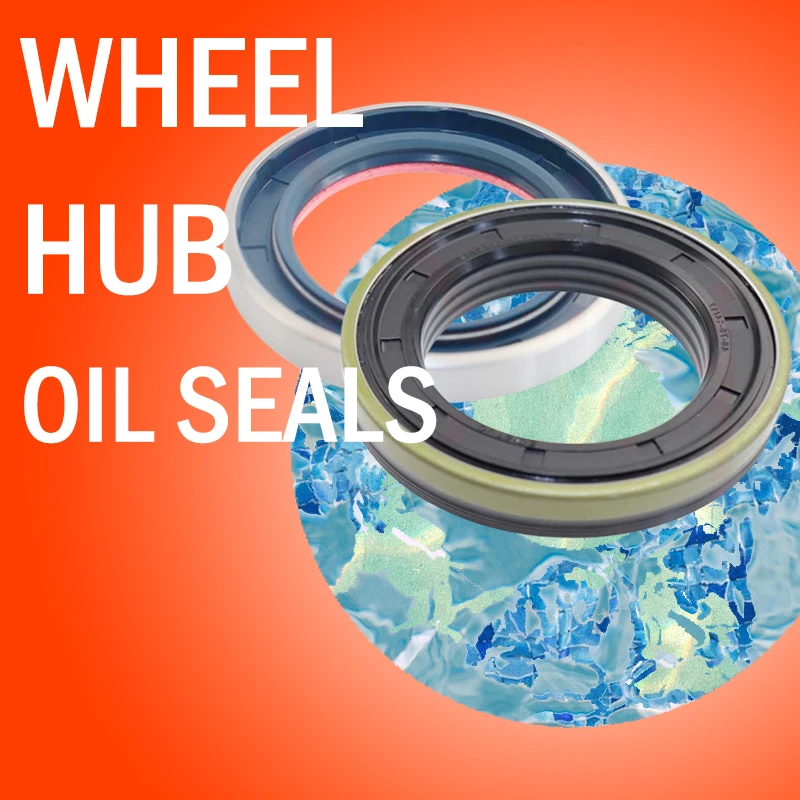Dec . 20, 2024 11:57 Back to list
wheel hub oil seal
The Importance of Wheel Hub Oil Seals A Comprehensive Overview
Wheel hub oil seals are vital components in the automotive industry that ensure the smooth operation of vehicles. These mechanical seals serve to retain lubricant within the wheel hub assembly while simultaneously preventing dirt, water, and debris from entering the assembly. Understanding their importance, design, application, and maintenance can greatly enhance vehicle performance and longevity.
Functionality of Wheel Hub Oil Seals
At their core, wheel hub oil seals function to create a barrier that separates the internal lubricating oil from the external environment. Proper sealing is crucial to maintain the integrity of the lubricant, which is essential for reducing friction between moving parts. Without an effective oil seal, the lubricant would leak out, leading to increased wear and tear on the bearings and other components within the wheel hub. This could result in overheating and ultimately cause failure of the entire wheel hub assembly.
Design and Materials
Wheel hub oil seals are designed to withstand various environmental factors, including temperature fluctuations, pressure changes, and exposure to different chemicals. They are typically made from durable materials such as rubber, silicone, or polyamide. The design often incorporates a lip that presses against the shaft to provide a tight seal. This lip is critical in minimizing friction while maintaining the necessary sealing force.
Additionally, the design of oil seals can vary based on their application. For instance, different vehicles may require seals with specific dimensions or features tailored to their hub configurations. Engineers must consider factors like operating temperature, speed, and load when selecting the appropriate seal for a given application.
Application in Vehicles
wheel hub oil seal

Wheel hub oil seals are found in various types of vehicles, from passenger cars to heavy-duty trucks. They are integral to both front and rear wheel hubs, playing a critical role in the functionality of the braking and steering systems. In four-wheel drive (4WD) vehicles, they also protect the differential and axle components, demonstrating the versatility and importance of these seals in ensuring overall vehicle performance.
Maintenance and Replacement
Proper maintenance of wheel hub oil seals is essential to ensure a vehicle's operational efficiency. Regular inspections can help identify signs of wear, such as cracks or deformation, which may indicate that replacement is necessary. It's advisable to replace oil seals whenever servicing the wheel hub, as failing to do so can lead to greater and more costly issues down the line.
To replace a worn or damaged oil seal, the process typically involves removing the wheel, hub assembly, and old seal, cleaning the mating surfaces, and installing a new seal with proper alignment. It is crucial to follow manufacturer guidelines during this process. Improper installation can lead to premature failure and negate the benefits of the new seal.
Signs of Failure
Drivers should be aware of the signs indicating potential oil seal failure. Common symptoms include abnormal noises (grinding or whirring) from the wheel hub, visible leaks around the wheel area, or a noticeable drop in lubrication levels. Addressing these issues promptly can prevent severe damage to the vehicle and costly repairs.
Conclusion
In conclusion, wheel hub oil seals play an indispensable role in maintaining vehicle performance by ensuring the effective sealing of lubricants and protecting against contaminants. Understanding their importance and ensuring their proper maintenance and timely replacement can enhance the lifespan of the vehicle's wheel hub assembly and improve overall safety. Since the cost of neglecting these small yet vital components can lead to significant repairs, drivers and automotive professionals alike should prioritize the health of wheel hub oil seals in their routine vehicle maintenance. With proper care, these seals can effectively guard against wear and ensure vehicles operate smoothly for years to come.
-
Unlocking the Potential of Hydraulic Systems with Essential Sealing Solutions
NewsAug.06,2025
-
Unleash the Power of Your Hydraulic Systems with Our Premium Seal Kits
NewsAug.06,2025
-
Specialized Hydraulic Seal Kits for Breakers, Pistons, and Presses
NewsAug.06,2025
-
Revitalize Hydraulic Systems with Premium Repair and Seal Kits
NewsAug.06,2025
-
Fortify Your Cylinders with Premium Sealing Solutions
NewsAug.06,2025
-
Elevate Hydraulic System Reliability with Specialized Seal Kits
NewsAug.06,2025
-
TCN Oil Seal Metal Ring Reinforcement for Heavy Machinery
NewsJul.25,2025
Products categories
















